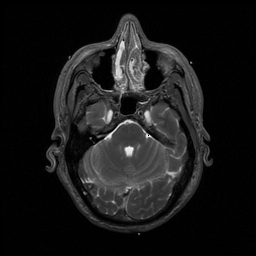
Different parts of the brain mature at different rates. By early adolescence the parts of the brain responsible for social interaction are pretty well developed, but the parts responsible for critical thinking and impulse control (the frontal cortex) are not.
We visited the Le Bonheur Children’s Hospital today. And after a tour, a couple of people from the neurological division gave us a nice little presentation about the human brain. They used Rita Carter’s DVD, “The Human Brain“, which has a great animation of electrical signals pulsing from neuron to neuron through the neural network. I’m considering getting it for the class because the animations and the interactive slicing of the human brain are pretty neat. You can, however, find some, free applications for looking at the whole human body from the Visible Human Project.
Anyway, the fact that impulse control and critical thinking abilities are late to develop did not require fancy brain imaging to discover. Jean Paiget’s research on cognitive developmental stages found evidence that abstract thinking did not develop until the early teens. In fact, he found that abstract thinking (or formal operations as he called it) did not necessarily develop at all. As the frontal cortex matures, the ability to do abstract thinking also develops, but that does not necessarily mean that everyone learns how to do it. (At this point I make an unbiased pitch for the Montessori approach opposed to traditional schooling).
It’s very nice, or perhaps a better word is “elegant”, when very different types of research, using fundamentally different methods come to the same conclusions. In this case, neuroscience (brain imaging), which is ultimately based on physics and biology corroborates the psychological research into cognitive development, which is primarily based on observation and survey.